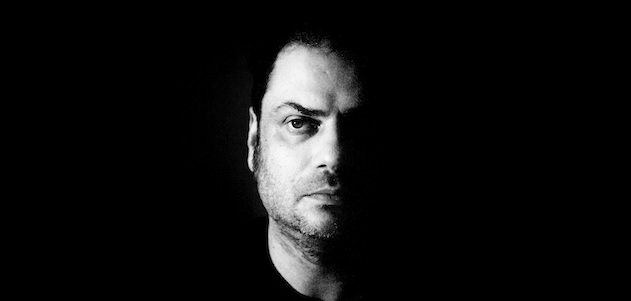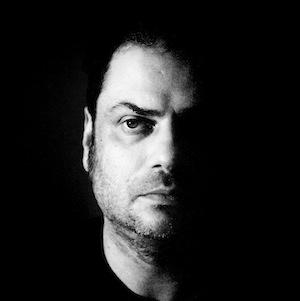What does ‘trance’ really mean? Is it time we cast aside the stereotypes and got back to the true meaning of the word? Kristan Caryl talks to Optimo’s JD Twitch about a much-maligned aspect of electronic music.

Trance wasn’t always a dirty word in house and techno circles. As hard as it may be to believe it given the state of trance in 2014, the genre didn’t start and end with German and Dutch titans like Paul van Dyk and Armin Van Buuren. From the famed hippie trail party scene in Goa to transcendental sounds like Asia’s Qawwali movement and even the KLF’s late eighties output, the concept of ‘trance’ in music has roots in many different cultures and countries.
Sadly, though, during the 90s, the term became appropriated by the aforementioned emotional overlords who were insistent on loading up tracks with the most overtly teary-eyed melodies and pseudo-celestial breakdowns. Yet attempts to reclaim the term have cropped up on a number of occasions over the last few years. Recent examples include Detroit’s Omar-S with his ubiquitous hit ‘Here’s Your Trance Now Dance’, Brit Evian Christ with his Dipset-inspired Trance Party nights and of course the Border Community crew and their modern re-interpretations of a genre whose main aim is to lull you into a half-awake, half-asleep, partly-conscious state of uplifting emotional reflection and spiritual calm.
Someone who has never been afraid to dip his toe into trance when playing one of his notoriously widescreen sets is Optimo’s JD Twitch. As such, we tapped up the Scot to get his views on the issue.
Attack: When did you first become aware of ‘trance’ in music?
JD Twitch: I used to use the term long before it was used in reference to dance music. As a teenager I listened to lots of repetitive, hypnotic music – be that electronic or rock – and regarded that as trance. When acid house first came along a lot of people initially referred to it as ‘trance dance’. The first KLF records in the late 80s were branded as Pure Trance. That tendency carried on into the early 90s until the precursor to what most people think of as trance started pouring out of mainly Germany around 1992/3.
As far as what I thought of as trance, the initial things I loved were actually from New York; records like the Lost Entity and Code 6 releases on Nu Groove, by Joey Beltram, Mundo Muzique’s ‘Andromeda’, ‘Dreamworld’ by Ego Trip, the Atmosphere label, some Belgian records such as Phantasia’s ‘Inner Light’, ‘No Promises’ by The Mackenzie and ‘Age Of Love’. A little later the Germans developed their take on it and I liked early Jam & Spoon and Air Liquide, early MFS, Harthouse and Eye Q and records such as ‘Mihon’ by Ongaku and lots of obscure one-off records I no longer recall. In the UK, some releases on Guerrilla and Sabres of Paradidse and also records from Holland on ESP, Djax and See Saw. Some of these are timeless, especially the New York ones, while many of them haven’t aged so well.
Why did it appeal to you?
I’d always liked hypnotic music and it was also a bit of a contrast to some of the harder post-rave sounds. Although I never really thought about it at the time, it probably complemented a lot of people’s drug experiences and feelings of euphoria. It was when all this got amped up to the nth degree and the music became cynically euphoric and generic that I lost interest. By the time progressive house – posh trance – and your ATBs had come along I’d long since lost interest.
So what exactly is the characteristic that makes something ‘trancey’, do you think? There seems to be a split between trance that induces an uplifting rush and trance that grips you in a kind of mindless, hypnagogic state…
I generally avoid anything that has a ‘y’ on the end. Trancey, jazzy, etc – all horrible and diluted. I remember frequently in the early 90s being asked if I could play something ‘trancey’ and feeling a little queasy every time. To me trance comes from transcendental and is hypnotic, perhaps, but not necessarily ecstatic. Psychedelic, yes (although that word is almost as meaningless as trance now), hypnagogic and even healing, especially with regard to something as transcendental as say Pandit Pran Nath’s music.
I remember frequently in the early 90s being asked if I could play something 'trancey' and feeling a little queasy every time.
This probably makes me sound like some sort of pretentious old hippie but I do think there is a thread that goes back through the ages to the primal, hypnotic music of when we were living in a very primitive society that has some deep beneficial effect on us we perhaps don’t fully understand, or have forgotten how to understand. I think a lot of psy-trance fans probably thought the same but added too many drugs, juggling and ridiculously fast tempos to the equation and thus lost the point a bit.
Where does the genre start for you? Maybe the EBM groups of the 70s? Have you ever traced it in that way?
psy-trance added too many drugs, juggling and ridiculously fast tempos to the equation
As far as electronic trance goes, perhaps Terry Riley was the first? Then on through Cluster, Harmonia, Conrad Schnitzler, Tangerine Dream, even Kraftwerk and a legion of other Germans (not forgetting Giorgio Moroder – ‘I Feel Love’ surely being an all-time trance classic. Cerrone’s ‘Supernature’ too) through to some Throbbing Gristle and Cabaret Voltaire on to Chris & Cosey, lots of obscure cosmic disco and Euro disco, some German NDW – lots of that now gets called minimal synth – some EBM, some Belgian new beat, acid house, etc, etc. If one bypasses all the crap trance, that thread continues through to a lot of modern electronic disco, Border Community and acts such as Fuck Buttons, Factory Floor and Oneohtrix Point Never to name just a few. So, I think it is possible to trace it in myriad ways.

02.49 PM
Great read.
Trance as a genre is totally irredeemable. Cheesy chords, Europeans in tight t-shirts, crusties, white hippies with dreadlocks. And Tiesto. Ugh. I can’t remember a time when it ever was cool. I’m too young to have heard any of the early 90s stuff in clubs but I remember the late 90s well, when the UK charts were full of stuff like Alice Deejay, ATB, Darude and Sash. All total shit, and I’ve never heard any credible alternative which has convinced me that there’s anything better lurking in so-called ‘underground’ trance. Seriously, if such a thing exists then I’d love to hear it but I doubt it.
Trance as a concept is an entirely different matter. If trance means being engrossed by repetition in dancefloor-focused music then isn’t that something which just about every genre aspires to? That last answer sums it up: you can still get away with trance-style music just as long as you hide the fact it’s trance. Don’t mention the t-word.
02.56 AM
We only know the above wanky comment isn’t by Guy Veale due to the syntax being unrecognisable, and the fact that it’s in dire need of a jolly good edit.